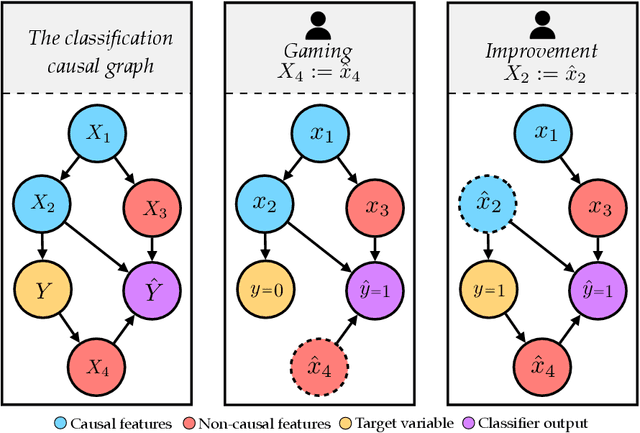Strategic Adaptation to Classifiers: A Causal Perspective
Paper and Code
Nov 01, 2019

Consequential decision-making incentivizes individuals to adapt their behavior to the specifics of the decision rule. A long line of work has therefore sought to understand and anticipate adaptation, both to prevent strategic individuals from "gaming" the decision rule and to explicitly motivate individuals to improve. In this work, we frame the problem of adaptation as performing interventions in a causal graph. With this causal perspective, we make several contributions. First, we articulate a formal distinction between gaming and improvement. Second, we formalize strategic classification in a new way that recognizes that the individual may improve, rather than only game. In this setting, we show that it is beneficial for the decision-maker to incentivize improvement. Third, we give a reduction from causal inference to designing incentivizes for improvement. This shows that designing good incentives, while desirable, is at least as hard as causal inference.
 Add to Chrome
Add to Chrome Add to Firefox
Add to Firefox Add to Edge
Add to Edge